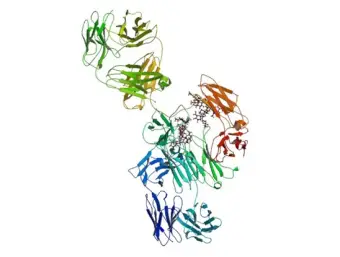Ertugliflozin API Manufacturers & Suppliers
Find, compare & contact
Filters
Custom request?
Type
Production region
Qualifications
Country of origin
Producer
Produced in:
Established in: 1984
MOQ: -
Employees: 2000+

Vertically integrated company

Largest producer of Montelukast in the world

USFDA & WHO GMP approved API plants
+ 0
All certificates
Producer
Produced in:
Established in: 2019
MOQ: 1 kg
Employees: 10+

Focused on pharmaceutical industry

Reasonable price for the customers

Full service from R&D stage to commercial stage
+ 0
All certificates
How does it work?
You can register for free as long as you are registering on behalf of a legal company related to the pharmaceutical industry
Search in the search bar the product that you’re looking for. We’ll show you an overview of all available suppliers. Use the filters to select the relevant suppliers only
Have you found interesting suppliers? Then it’s time to contact them. Use the send inquiry button and send them a message. You can send for each product, 3 inquiries per week
Suppliers get notified by Pharmaoffer that they’ve received a new inquiry. They will come back to you with their questions, certificates, and offer in the chat on Pharmaoffer. We will send you an email in case of any news
Does the supplier meet your quality and commercial requirements? Then you can place the order. Just follow the steps of our order module
Looking for Ertugliflozin API 1210344-57-2?
- Description:
- Here you will find a list of producers, manufacturers and distributors of Ertugliflozin. You can filter on certificates such as GMP, FDA, CEP, Written Confirmation and more. Send inquiries for free and get in direct contact with the supplier of your choice.
- API | Excipient name:
- Ertugliflozin
- Synonyms:
- Ertugliflozin L-Pyroglutamate
- Cas Number:
- 1210344-57-2
- DrugBank number:
- DB11827
- Unique Ingredient Identifier:
- 6C282481IP
Ertugliflozin is a type of SGLT2-inhibitors
SGLT2 inhibitors, short for Sodium-Glucose Co-Transporter 2 inhibitors, belong to the pharmaceutical API subcategory utilized in the treatment of type 2 diabetes mellitus (T2DM). These innovative drugs target the SGLT2 protein responsible for reabsorbing glucose in the kidneys, resulting in increased urinary glucose excretion.
By inhibiting SGLT2, these drugs effectively lower blood glucose levels and improve glycemic control in patients with T2DM. This mechanism of action is independent of insulin secretion or sensitivity, making SGLT2 inhibitors an attractive option for individuals who are resistant to or cannot tolerate other diabetes medications.
Some commonly prescribed SGLT2 inhibitors include canagliflozin, dapagliflozin, and empagliflozin. These pharmaceutical APIs are typically formulated into oral tablets, making them convenient for patient administration.
Clinical studies have demonstrated the effectiveness of SGLT2 inhibitors in reducing HbA1c levels, body weight, and blood pressure in patients with T2DM. Additionally, these medications have shown potential cardiovascular benefits, including a decreased risk of cardiovascular events.
However, it is important to note that SGLT2 inhibitors are not suitable for everyone, and their use should be carefully considered in patients with renal impairment or a history of ketoacidosis. Adverse effects may include genitourinary infections and increased risk of dehydration.
Overall, SGLT2 inhibitors are a promising class of pharmaceutical APIs that offer an innovative approach to managing T2DM by targeting renal glucose reabsorption. Ongoing research and development in this field aim to further optimize the therapeutic potential of SGLT2 inhibitors and improve patient outcomes.
Ertugliflozin (SGLT2-inhibitors), classified under Anti-diabetics
Anti-diabetics, belonging to the pharmaceutical API (Active Pharmaceutical Ingredient) category, are a group of compounds designed to manage and treat diabetes mellitus, a chronic metabolic disorder characterized by high blood sugar levels. These medications play a vital role in controlling diabetes and preventing complications associated with the disease.
Anti-diabetics encompass a wide range of drug classes, including biguanides, sulfonylureas, thiazolidinediones, dipeptidyl peptidase-4 (DPP-4) inhibitors, sodium-glucose cotransporter-2 (SGLT2) inhibitors, and glucagon-like peptide-1 (GLP-1) receptor agonists. Each class works through different mechanisms to regulate blood sugar levels and improve insulin sensitivity.
Biguanides, such as metformin, reduce glucose production by the liver and enhance insulin sensitivity in peripheral tissues. Sulfonylureas, like glipizide, stimulate insulin secretion from pancreatic beta cells. Thiazolidinediones, including pioglitazone, improve insulin sensitivity in muscle and adipose tissues. DPP-4 inhibitors, such as sitagliptin, increase insulin release and inhibit glucagon secretion. SGLT2 inhibitors, like dapagliflozin, decrease renal glucose reabsorption, leading to increased urinary glucose excretion. GLP-1 receptor agonists, such as exenatide, enhance insulin secretion, suppress glucagon release, slow gastric emptying, and promote satiety.
These anti-diabetic APIs serve as the foundational ingredients for the formulation of various oral tablets, capsules, and injectable medications used in the treatment of diabetes. By targeting different aspects of glucose regulation, they help patients achieve and maintain optimal blood sugar levels, thus reducing the risk of diabetic complications, such as cardiovascular disease, neuropathy, and nephropathy.
It is crucial for healthcare professionals to prescribe and administer these anti-diabetic medications appropriately, considering factors like the patient's medical history, co-existing conditions, and potential drug interactions. Regular monitoring of blood glucose levels and close medical supervision are necessary to ensure effective diabetes management.
In conclusion, anti-diabetics form a critical category of pharmaceutical APIs used for the treatment of diabetes. These compounds, encompassing various drug classes, work through distinct mechanisms to regulate blood sugar levels and improve insulin sensitivity. By facilitating glucose control, anti-diabetic APIs help mitigate the risk of complications associated with diabetes mellitus, ultimately promoting better health outcomes for patients.
Ertugliflozin manufacturers | traders | suppliers
We have 2 companies offering Ertugliflozin produced in 0 different countries.
Get in contact with the supplier of your choice:
- Morepen Laboratories Ltd. from India, product country of origin India
- Apino Pharma Co., Ltd. from China, product country of origin China
Let the supplier know whether you are looking for a product with a specific monograph such as EP (Ph. Eur.), USP, JP, BP or another quality. Or, whether you are looking for hydrochloride (HCl), anhydricum, base, micronisatum or a specific purity.
You can use the filters to find high-quality suppliers. For example, you can select GMP, FDA or ISO certified suppliers. Visit our FAQ page or use the chat box in the corner to get more information about Pharmaoffer.










